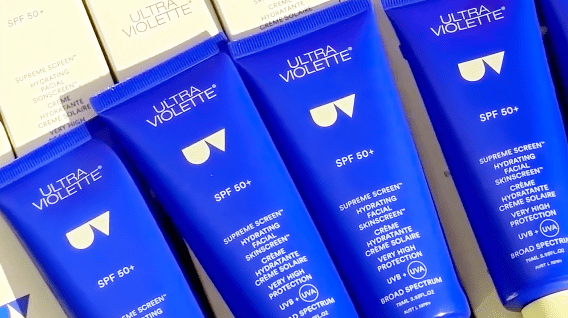Ultra Violette’s activation of allies ran into a big problem – the truth
On Tuesday, ten more sunscreens were pulled from shelves by the TGA, bringing the total to 18. The sunscreen industry’s latest upheaval offers a lesson in comparison to us all in how well-intentioned crisis management can create a whole new issue of crisis.
Ultra Violette’s response to Choice’s SPF testing may well be a case of what happens when brands activate their stakeholder network with information that later proves unreliable. Crisis communications expert Sally Branson explores.

Some Ultra Violette sunscreens have true SPF ratings much lower than indicated
I firmly believe stakeholder management, meeting the market where they’re at, and activating allies is critical to crisis management. But with the absoluteness of online information, it is critical to get it right.
When Choice revealed that Ultra Violette’s Lean Screen SPF 50+ returned test results of just 4 and 5, the brand’s immediate response was to dispute the findings publicly. Normally it is a really great strategy to activate and mobilise allies and champions, but in this instance their ecosystem of beauty influencers, bloggers, and TikTok creators activating to amplify their counter-narrative happened without bulletproof information to support it.
The beauty influencer defence network
Ultra Violette’s demographic positioning as a prestige beauty brand gave them access to a powerful ally network. Beauty influencers with significant followings stepped up to defend the brand, sharing annotated critiques of Choice’s testing methodology while promoting Ultra Violette’s claims of systemic issues in sunscreen testing standards.

